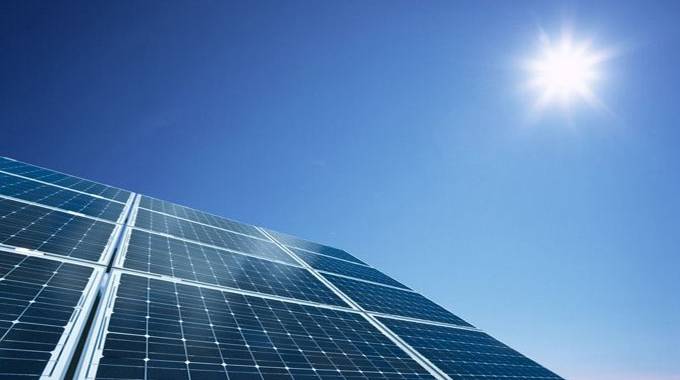Zim must fully utilise affordable clean energy

Walter Mswazie, Features Correspondent
Zimbabwe’s rural population spends at least $1,5 million on buying candles for lighting due to energy poverty amid reports that about 10 million people are victims of the phenomenon.
The Zimbabwe Energy Regulatory Authority (Zera) says more than 80 percent of people in the country are off the national electricity grid.
Access to renewable energy has been singled out as one of the key development indicators by the United Nations (UN).
The UN has put access to renewable energy as Sustainable Development Goal number seven and set 2030 as the year member states’ citizens should attain total access.
The UN has set a goal of 300 gigawatts of renewable energy capacity by the same year which, however, requires a 68 percent increase in present deployment rates.
Despite Africa having abundant sunshine, there is still a long way to go before we can harness the sun for our own good.
Globally, China tops other countries including Germany as the world’s largest producer of photovoltaic power.
In 2015, the country was the world’s largest manufacturer of solar panels followed by Japan, Germany, United States of America, Italy, United Kingdom, India and France.
However, in 2016 Germany was the biggest producer of renewable energy with a capacity of 105,8GW while its solar energy capacity was 40,9GW and its wind capacity stood at 49,7GW.
According Zera, the country has an annual daily average solar radiation of 20 megajoles per square metre but access to affordable clean energy for the majority of Zimbabweans still remains a pipe dream.
It is against this background that the advent of renewable energy players like Zonful Energy will address the limited or lack of access to renewable energy, especially by the rural folks, who are off the grid.
Speaking on the sidelines of a launch of the company’s products in Bikita recently, Zonful Energy chief executive Engineer William Ponela said the target was to improve access to renewable energy for those who are not within the national electricity grid.
He said his company was targeting to install solar power systems to at least 10 000 households in Bikita in the next five years and to cover the energy deficit by the year 2030.
In pursuance of this objective, he said, the company had introduced a pay as you go facility which made the payment of Zonful Energy services affordable and relatively cheap.
He said beneficiaries of the solar power systems would be allowed to use them while paying.
“We’re introducing solar power systems to Bikita communities so as to improve rural folks’ access to renewable energy. About 10 000 villagers should be connected to our solar system in the next five years,” said Eng Ponela.
“Our products are affordable such that even a woman who earns her income from a small garden can afford to pay. We have a facility called Pay As You Go and that means that once the system has been installed at your homestead, you can start using it, while waiting to make your first instalment,” he said.
Eng Ponela said solar energy presented rural people with an opportunity to contribute immensely to the Gross Domestic Product as they can also use the system to engage in income generating projects.
He said school children will not have headaches on what to use for lighting during studies adding that one bulb represents the light of more than 12 candles.
“Introducing solar energy in rural areas means adding value to their livelihoods and addressing their energy poverty. We have connected quite a number of households in Manicaland, Midlands and Mashonaland West provinces.
“As far as the national electricity grid is concerned, there is no parity where as with solar power, there is no need for conductors because the source is in abundance,” he said.
Masvingo Environmental Management Authority (EMA) education and publicity officer, Mr Brian Makani, hailed Zonful Energy for playing a pivotal role in protecting the environment saying once communities start using solar power, deforestation would be reduced.
“We want to thank Zonful Energy for adding value to our efforts on protecting the environment. Once rural people start using solar energy, the wanton destruction of trees would be a thing of the past.Villagers will be using solar power instead of wood for cooking,” said Mr Makani.
“Solar power also prevents global warming and climate change. I appeal to Zonful Energy to extend its tentacles to all districts of Masvingo so that we tame the vice around the cutting down of trees in the province,” he said.
Zera acting chief executive, Engineer Eddington Mazambani said Zonful Energy was addressing a power deficit that the company had and were an integral part in the energy sector.
“Zonful is in support of SDG 7 which asserts that all citizens should have access to clean, renewable energy by 2030. With such players, we will not have challenges in addressing the power deficit in the country,” said Eng Mazambani.
The country requires about 1 600 megawatts of power per day for domestic and commercial consumption but it is currently producing around 1 000 megawatts per day. The deficit is covered by imports, as the country buys power from Eskom in South Africa, and HCB of Mozambique.
He said as part of increasing energy levels in Zimbabwe, Zera had licensed 51 independent power producers in the last five years with other companies having implemented their projects.
“We have licensed 51 IPPs and some are at different stages of implementation. Some are taking long due to challenges of foreign currency which are exacerbated by restrictive economic measures,” he said.
According to Zera, IPPs contribute 137,08 gigawatt hours to the national grid.
He said the US$30 million Tugwi-Mukosi hydro power plant initiative in Masvingo province was still on course with the company that won the tender expected to start a 5MW mini-hydro power project soon.
“The Tugwi-Mukosi project is on course and very soon, the investor will be on the ground. We also have three other IPPs for Nuanetsi in Mwenezi, Lake Mutirikwi in Masvingo and Mkwasine in Chiredzi.
“All this is being done to address the power deficit in the country as these power plants will feed into the national grid.
“While we have not licensed Zonful Energy, the company is doing a great job in improving rural folks’ access to clean renewable energy.”
Chief Budzi of Bikita said improving access to energy brings development to rural areas.
“As part of my role in local governance, I should spearhead development in my area. I am doing this by allowing installation of solar power in my subjects’ homesteads. This will go a long way in transforming their lives,” said Chief Budzi. — @walterbmswazie2











Comments